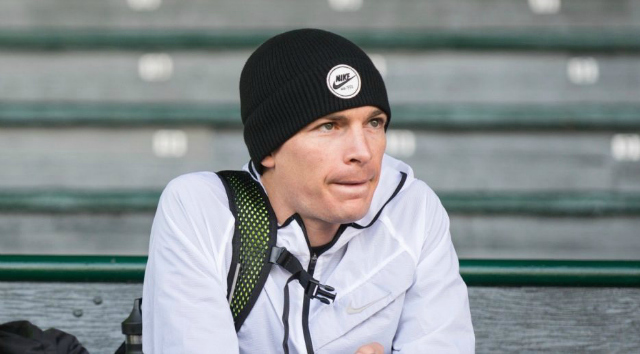The Strength Running Podcast returns! And our guest – Mario Fraioli – is here to talk about coaching for runners.

Mario is a running coach, a 2:28 marathoner, and the 2012 Costa Rican Men’s Olympic Marathon Coach.
Formerly a Senior Editor at Competitor Magazine, he’s also a cross country All-American and the author of the Official Rock ‘n Roll Guide to Marathon and Half Marathon Training.
I’ve known Mario for years, having competed against him in college cross country and at the 2007 Old Fashioned 10 Miler in Foxboro, MA (he’s a LOT faster than me…).
Before the 2016 Boston Marathon, we got together for coffee to talk about coaching, the upcoming race, and his latest project: the morning shakeout newsletter.
Mario has always impressed me with his thoughtfulness about the sport – not just about training and coaching, but also:
- The role of PEDs and the murky grey zone of TUEs in professional endurance sports
- Multi-tasking, writing, and focus (and how all that relates to running)
- The process of mastery, recommended podcasts and books, and the importance of patience
He’s a long-time friend of Strength Running and has joined me for many interviews in the past.
And this particular conversation is one of my favorites.
An excerpt from our longer conversation (found in Team Strength Running), we’re diving deep into the art and science of coaching – and specifically, virtual coaching.
Mario Fraioli on Coaching Runners
Episode 4 of the SR Podcast is now available:
Show Links & Resources:
- Strength Running Coaching Programs
- Periodization and how to plan a season
- SR custom training plans
- How to be coachable
- My college coach Jim Butler (interview)
- Jack Daniels’ Running Formula
You can also download the episode directly from iTunes or Stitcher.
If you’re enjoying the podcast, please leave a rating or review on iTunes or Stitcher! It is a HUGE help and gives me the green light to keep producing more episodes.
Thank you for listening and please let me know if you have any comments, concerns, or questions!